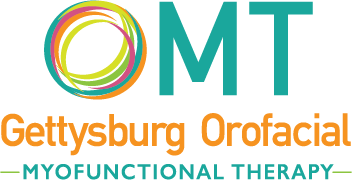Beyond Cosmetics: How Orthodontics Can Correct Dental Challenges
Beyond Cosmetics: How Orthodontics Can Correct Dental Challenges
Orthodontists are essential members of the dental healthcare team, addressing a wide range of dental challenges that extend far beyond teeth straightening and aesthetics.In this blog post, we'll explore some lesser-known issues Gettysburg Dental Associates orthodontists treat to promote oral health and overall well-being.
Malocclusions and Bite Issues
Orthodontists specialize in diagnosing and correcting malocclusions, which are problems with the alignment of the upper and lower teeth. These issues can lead to a misaligned bite, commonly known as an overbite, underbite, cross bite, or open bite. Malocclusions can cause difficulty chewing, speaking, and maintaining good oral hygiene. Orthodontic treatment can help align the jaws and teeth, improving function and reducing the risk of related dental problems.
Temporomandibular Joint Disorders (TMD)
The temporomandibular joint (TMJ) connects your jawbone to your skull, and problems with this joint can lead to temporomandibular joint disorders (TMD). TMD can cause jaw pain, headaches, clicking, or popping sounds when you open and close your mouth, and even difficulty fully opening your mouth. Orthodontists can treat TMD by repositioning the teeth and correcting the bite, which can alleviate discomfort and restore normal jaw function.
Speech Impediments
Misaligned teeth and jaws can cause speech impediments, such as lisping or difficulty pronouncing certain sounds. Orthodontic treatment can reduce speech challenges by aligning the teeth and jaws to improve speech clarity and confidence in communication. This treatment is especially crucial for children who experience challenges in their speech development due to dental issues.
Sleep Apnea and Snoring
Sleep apnea is a severe sleep disorder characterized by repeated interruptions inbreathing during sleep. Orthodontists help treat sleep apnea by addressing the underlying cause: obstructed airways. In some cases, orthodontic treatment can help reposition the jaw or expand the upper palate to open the airway, reducing or eliminating symptoms. Additionally, orthodontists can offer solutions for chronic snoring, which can disrupt sleep patterns for both the affected individual and their loved ones.
Dental Crowding and Spacing
Beyond misalignment, orthodontists can address dental crowding and spacing issues. Crowded teeth can be challenging to clean effectively, increasing the risk of cavities and gum disease. On the other hand, excessive spacing can lead to gaps that trap food particles and affect self-confidence. Orthodontic treatment can help create a well-balanced, properly aligned smile, reducing the risk of dental problems while improving aesthetics.
Impacted Teeth
Impacted teeth, such as wisdom teeth, can lead to pain, infection, and other oral health issues. Orthodontists work with oral surgeons to help guide impacted teeth into their correct positions or extract them when necessary, ensuring the health and comfort of the patient.
Dental Trauma and Facial Injuries
Accidents happen. Dental trauma or facial injuries can lead to broken or dislodged teeth and jaw misalignments. Orthodontists are skilled at reconstructing and realigning damaged teeth and jaws, restoring function and aesthetics following traumatic events.
If you're experiencing any of these dental issues, Gettysburg Orthodontics can help you find effective solutions to improve your oral health and quality of life. Remember, a healthy smile is more than just straight teeth—it's having a functional and pain-free mouth so you can enjoy life to the fullest.






